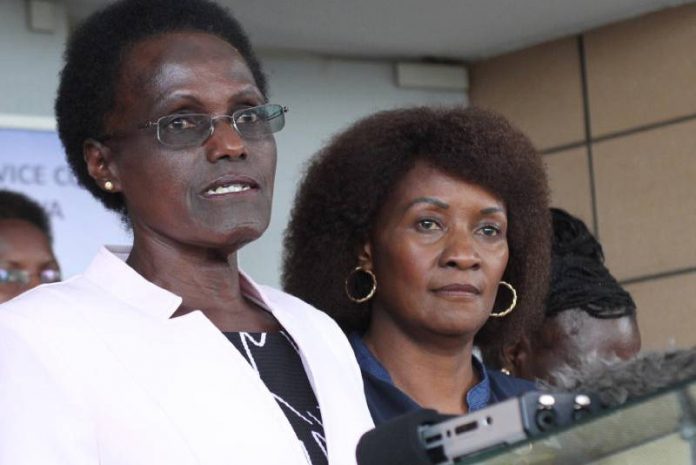Teachers Service Commission has directed all teachers to register with the Curriculum Support Officers and Sub County Directors within Zones and Sub–County where they are currently staying in by 12th August 2020.
This move will enable teachers to engage learners who have been out of schools since March when schools were closed in a bid to slow down the spread corona virus.
In a circular dated 11 August, TSC CEO Dr. Nancy Macharia has detailedly outlined guidelines that will guide teachers in carrying out community based learning.
“All teachers employed by the Commission are directed to register with the Curriculum Support Officers and Sub County Directors within Zones and Sub–County where they are currently staying in by 12th August 2020 with a view to undertaking community based learning which has been identified as a means of engaging learners during the current period when schools are closed as a result of the Covid 19 pandemic,” stated TSC boss Nancy Macharia.
Orientation and/or induction of teachers on learner engagement will be carried out through a multi–agency approach (Ministry of Education, Ministry of Interior and Coordination of National Government, Ministry of Health and the Teachers Service Commission).
Community based learning programme will be coordinated jointly with the Ministry of Education, Ministry of Interior and Coordination of National Government, Ministry of Health and the Teachers Service Commission.
Roles of Teachers in Community Based Learning
Teachers will play a pivotal role to ensure the success of the programme. In this respect, teachers will be expected to carry out the following activities:
- Heads of institutions should be in school atleast once per week to supervise and monitor the programme.
- Utilize the Nyumba Kumi programme to ensure that all learners participate in the programme.
- Set up a face to face programme of engaging not more than 15 learners while strictly observing the Ministry of Health Guidelines and protocols. This engagement should be at least 4 Hours a day at no charge.
- Organize the learners as much as possible according to their classes and/or age groups to ensure that the topics under discussion are relevant, suitable and appropriate to the group.
- Sensitize and educate the learners on the guidelines and protocols issued by the Ministry of Health towards the containment of the Covid–19 pandemic.
- Identify in consultation with the officials from Ministry of Education and Ministry of Interior, suitable places like community halls or open spaces where conducive environment may be created to enable learning to take place within the community. Such places should be well arranged in strict adherence to the Guidelines and Protocols issued by the Ministry of Health.
- Develop a daily activity based programme for engaging learners on life skills and values such as weeding, cultivating, grazing animals, storytelling, planting, debating life issues, hygiene and other related activities.
- Provide learning activities in reading and numeracy and other subjects of interest to learners to keep them engaged.
- Develop task–based activities for learners to undertake during the session or while with their parents at home.
- Utilize available radio, television and online content within the reach of children to make learning interactive.
- Assign reading and exercises to learners for home study.
- Conduct remote daily or weekly follow up with students and parents.
- Utilize local resources during learners‘ engagement.
- Offer guidance and counselling and psycho–social support to learners.
- Monitor the progress and the status of learners and provide information to Curriculum Support Officers.
- Code of regulations for teachers and Code of conduct and Ethics for Teachers shall prevail.


